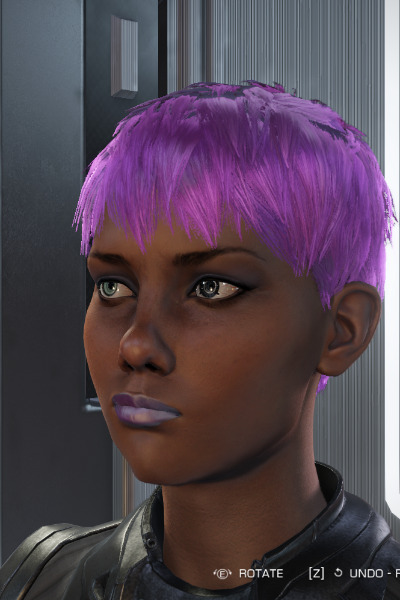CMDR Tentacle Love profiel > Logboek

(Python)

“A biologist can never celebrate the extinction of a species.” - Makrus Gelbret, shortly before his death in 3295. It’s not known if this quote was delivered in person or via digital text, but I know that it was delivered to one of my parents. Alanna and Astra are both marine biologists, and they participated in the noble effort to save the freshwater lifeforms of Wolf 1453 B 4 during the crisis of that year. It is a small, cold world, and the marine life there has precious little room to grow. There was almost no time to react to the pollution incident (3293), and in the act of saving the lifeforms that were in danger, they were forced to tamper with the evidence of the crime, leading to the perpetrators, whoever they may be, to get away with the dumping of the hazardous waste.
Wolf 1453 B 4 is a terraformed world, and with that terraforming comes the introduction of alien life to the planet as a standard practice. This usually consists of the bacteria and the human race, and very rarely, some livestock in the form of fish and small animals, to see if those species can become acclimated to the conditions of the world. This usually ends up resulting in interesting offshoots of those species; longer tails, sharper ears, shorter legs are all the rage, and lead to biologists high-fiving one another and sharing drinks while writing their papers. Marine biologists have very little luck in that sense however. The oceans of our worlds are far more sensitive to sunlight, pressure, and temperature, and the lifeforms we introduce to these oceans as a test never succeed. Each time, we’re forced to resort to genetic engineering to produce a fish that can survive in the specific conditions of a world and those species are extremely rare and delicate.
But there was an exception. One very delicate, very rare species that had no business surviving on this tiny world. When the bacterium were introduced to induce the terraforming process, there was a small lifeform that “woke up” under the surface of the water, a long thin creature that absorbed nutrients from the seabed, and hid under sand and rocks when the daylight got too hot and bright. The creatures were simply called tentacles, until some more fancy and appropriate name could be given to them. And they only chose to live in one of the many areas of the water in the world, in a freshwater area on one of its larger land spots. Officially, the lake was named after one of the early governors of the system, I believe, although it’s a name shared by a lot of other important persons from the general area, so there’s a little debate about that. Unofficially, the lake was tentacle lake.
In August of 3293 or thereabouts, some toxic chemicals were dumped illegally into a barren area between two large freshwater lakes. The criminals responsible probably had no idea that this made their act all the more terrible. If they had just dumped their trash into one of the lakes, the problem could have been handled by moving the affected wildlife into the neighboring lake. There would be some problems but the ecosystem could balance itself out. Instead, the planet’s scientists were forced into panic mode. Tentacle lake was now the largest clean freshwater lake, and hundreds of species had to be transported there for safekeeping. They were very important species, as I came to understand. I don’t know if any of them were secret, or if they’d been engineered for special gills or fins that made them super rare, or anything, but I did know for sure that it would take decades to engineer replacements, and nobody would waste time, energy, or money making fish for a polluted planet. Nearly all were officially sanctioned as “Must Be Protected” which carried some serious legal clout.
It was after the transfer was complete, and overwhelmingly successful, that the real tragedy struck. Wolf 1453 B 4’s secret species disappeared. The tentacles were no more. One of the “MBP” species from the primary lake, a species used for some A-grade stuff of some sort (not that I remember any of the details, if I was even given any) caused a chemical reaction in the tentacles that caused them to “shrivel and disintegrate.”
Many biologists resigned in the wake of the incident, refusing to call it a success story, although they refused to name any details about why they had resigned because the species was still being kept secret in order to protect it from experimentation and to protect the habitats of the world. When news finally broke about what had really happened, it blew up into the story heard systemwide and led to some bureaucratic changes, changes meant to prevent future incidents that would inevitably lead to more problems in the future. As the scientists put it, “the usual.”
When I was very young my parents gave me a list of names to choose from but I had already made up my mind. It was the secret topic that the entire scientific community there had been chatting about forever, and I loved this name. I suppose on some secret level, I wanted everyone to be talking about me. In any case, afterwards, they used my name as an excuse to talk more openly about the species, because they could always pretend that they were talking about me if they got caught discussing forbidden topics. When people ask where I got my name, I tell them the truth, my parents are marine biologists. Sure, there might be a little more to that story, but sometimes the things we don’t tell people make stories more interesting.